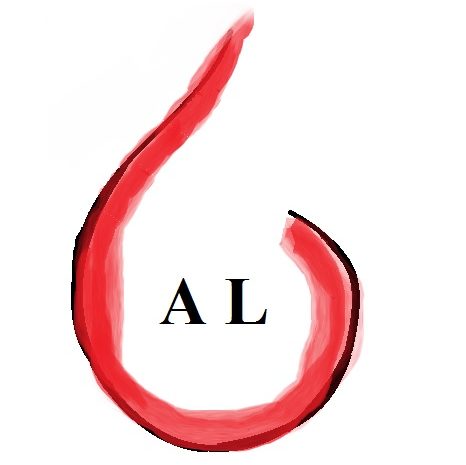Is time linear? In modern western culture we mostly seem to picture it that way. I guess I do too naturally; however, over the centuries different cultures have had more than just one linear view on time. I’d like to use two pieces of writing that helped me think deeper on this subject to ponder different temporal perceptions: 1. Laurus, a novel set in 1400s Russia and 2. An explanation of Biblical worldview in New Polity Magazine.
I believe that both Eugene Vodolazkin and Andrew Willard Jones teach the same concepts of life and time through a Christian perspective – the difference is in the art form. Vodolazkin uses a novel while Jones a scholastic journal.
Chronos vs. Kairos
I remember when I first heard of “circular time” it was in a class about St. John Paul II’s Theology of the Body. I thought I understood it because I had experienced moments where time seems to fluctuate – sitting in traffic vs. around a campfire for example.
I quickly filed away this concept in my brain like this:
“Chronos – chronological – in a line
Kairos – fancy Greek word for deep time… that’s deep”
But this is an oversimplified view that is as simple as saying “time flys when you’re having fun”. It puts our experiences into one box or another – flying fun or watching paint dry.
Reading Laurus
Laurus was honestly a bit of a tricky read at first for reasons both stylistic in the writing (no quotation marks for dialogue for example) and in the imagery and imagination used by the narrator.
You almost have to experience the first few chapters as a child experiencing language for the first time – by letting it wash over you, even if you don’t understand.
You grasp what you can hold, observe what you can see, but don’t worry about the rest.
This is probably true of any great work that is worth rereading because you can always go back to see what you didn’t see before.
There are many scenes in the first chapters of this book that make you just say, “What!?!” And it is these passages that always remind me of the fact that authors rarely will include a detail that is not important to them, so I note it and move on.
The Theme of Time in Laurus
To be honest, I don’t think I would have picked up the theme of time in Laurus as quickly as I did if it weren’t a copy of the book pre-owned by a very smart guy. His notes inspired some of these thoughts.
The theme of time does become clear towards the end of the book with an almost impossible to miss repetition of the concept.
As I started to keep my eyes open for the quotes, feeling smart, I assumed that the characters were experiencing the circular time of kairos that I had learned about a few years before, the “deep” time.
But something seemed even deeper about this novel than kairos alone.
Many Forms of Time in Laurus
Watch as the author plays with the concept of time through these quotes:
Time Doesn’t Exist
228 – (Ambrogio to Arseny) “I am going to tell you something strange. It seems ever more to me that there is no time. … I think time is given to us by the grace of God so we will not get mixed up, because a persons consciousness cannot take in all events at once. We are locked up in time because of our weakness.”
Time is a Curse
229 – (Ambrogio again to Arseny) “time is more likely a curse, for it did not exist in Heaven.”
Personal History vs. General History
This is where our characters get a little more nuanced. I like to compare this concept to the often quoted “God writes straight with crooked lines.”
211 – people are free, but history is not free.
243 – (brother Hugo) “Moving around within an expanse enriched our experience Ambrogio”it compacts time, and makes it more spacious.”
244 – Glaciers sink and resurface like history. Avalanches go, consume, and stop like personal history
Timelessness and Discontinuity
301 – “Arseny was riding into timelessness. Why would he be in a hurry?”
303 – “time is discontinuous”
Circle or Spiral?
307 – “time is circles”
308 – “a spiral of new with memory of before”
Repeating, but Not
309 – “repetitions are granted for our salvation and in order to surmount time.”
Mosaic!
I really like this one.
330 – “life resembles a mosaic that scatters into pieces. That is close up, whereas at a distance each provides more than can be seen.”
This reminds me of an ending scene of the movie Interstellar. I won’t spoil it, but it has since changed my view of how God (who is outside of time) sees our lives being lived out in the present.
Biblical Worldview: Four Lenses
Now for the Christian perspective that Andrew Jones lays out. It is a long peice, so I will be really simplifying this one concept of his much larger point.
The Bible, as well as life, can be viewed at any point through four stages or lenses.
- Historical – Real actions that happened in real time as we experience them on the surface
- Allegorical – Interpreting the events through the life of Jesus (pointing us to Him)
- Tropological – The moral understanding (how those events apply to our lives today)
- Anagogical – The divine understanding (how the events apply to our future in Heaven)
Time as an Ascending Spiral
I picture these four levels like a spiral road leading up a mountain. With each revolution you can pass the same point but with a different perspective.
This understanding fits with the concepts that Eugene Vodolazkin plays with in Laurus of time being circular or even more like a spiral – where you pass near the same moment though not quite exactly on it.
Personal History and General History
“The master narrative of Christendom built the phenomenological world in a fractal manner, retaining its integrity as it structured human life at different levels of scale, from the totality of history, down to a single act of a single person.”
A Liturgical Cosmos – Andrew Willard Jones – New Polity
Now, in addition to the concept of the ascending spiral, there are also many individuals experiencing their personal narratives consecutively and throughout history. Are there many people on one spiral path up the mountain? Or are there many spiraling mountains? Or Both?
Time Doesn’t Exist? Timelessness and Discontinuity
This is a great mystery of God being “outside of time”. Therefore, in a way, God is unaffected by time himself, He is called Unchanging, but that does not mean he doesn’t necessarily experience it. Maybe it is as a moving picture mosaic forming a beautiful image out of the messiness of our lives that make up individual parts.
After all, Jones points out that there is no end to the ascending in this life. We cannot complete the journey to Heaven until our death. So what happens when we reach the top of the peak and still have years to live? This may be the discontinuity or timelessness that Arseney was experiencing.
My Interpretation
Since attempting to digest these varying concepts of time, I tried to grasp more tangibly at how I can apply and live with a different world view, a Christian perspective on Time.
Generational Revolutions
Birth to Vocation (Historical)
On this mountain of time I picture starting at the bottom at 0 years old and working our way up the path historically. The initial loop is entirely new for us until we enter a Vocation. Here is where we let the world wash over us, as you have to when you first read the initial chapters of Laurus. You are just soaking in as much as you can trying to learn how to understand life and this world.
Spiritual Motherhood or Fatherhood (Allegorical)
Every vocation contains Motherhood or Fatherhood to an extent regardless of marital or clerical status. In this stage of life, you have learned enough (though not nearly everything) to be one step ahead of another. The other can be a child, friend, or mentee, whoever God puts in your life.
In this time of life, we are living allegory. We have been around the loop once, experienced enough to know what’s coming and thus to meditate on the deeper things. We can try to see how our lives relate to Jesus, especially through the mysteries of the Rosary.
This time around feels like Sophomore year, which was always my favorite in school. You know your way around, but there is still so much to learn. You’re not overwhelmed by newness, but less is demanded of you because you’ve still got time to get better.
Getting It Right (Tropological)
In the last generations we had lived the history twice, and started to understand the concepts in the context of the Life of Christ once. Now is the time to apply and get practical. No one is expected to be perfect on their first attempt of anything. Nor is anyone expected to be perfect while they are learning a new concept. This is why we have the classroom of life with many practice problems.
In the tropological, “getting it right” stage, we have likely made some mistakes but we can learn from those while we try to implement what we learned in the last time around. Maybe our kids have gotten older, or we have additional mentees/disciples in our life that we can give wisdom and advice to.
I haven’t reached this stage, but I imagine it would be better for someone at this point to be writing and sharing ideas – someone who is actually walking rather than still working ideas in their heads!
Patriarchy/Matriarchy (Anagogical)
One cannot know when the end will come. This stage of life is the persistant living out of what we know to be true, and aiming to perfect it with each additional repetition that God gives us.
With eyes on Heaven, we are moving forward up the spiral to get closer and closer to God as much as he allows, in preparation for the beautiful day when he calls us home to the feast!
Coclusion On Time
“I’m asking life for another chance
Before they put me in the ground
Lord, I swear I will do my best
On my second time around”
Mikael Temrowski (Quinn XCII) – “Second Time Around“
Though the initial thoughts most of us have on time is one straight line, I believe we experience these various perceptions and just may not have the words to articulate it.
The song I quoted above jumped out at me while gathering these thoughts. Later in the song he says, “I don’t think I can make it to Heaven / Believe me, I will try / I will not waste a day I am given / Like years I let go by.” He is thinking about this. It sounds to me like Mikael has gone through some allegorical thinking, sees the morality that he may have missed in his historical journey to this point, and now is hoping to excecute it in the second season of life as he enters a tropological time.
The part to remember throughout time, and what makes any perspective a Christian perspective on time, is that it is aimed at Christ. He is the summit of the mountain that we strive for, as well as the source where we get our strength. We do not summit under our own power, but with His assistance.
I hope this wasn’t too long and rambling, but provides some thoughts for you! Read Laurus, as well as Dr. Jones’ article. Let me know if my interpretation is way off or how you interpret Time.

